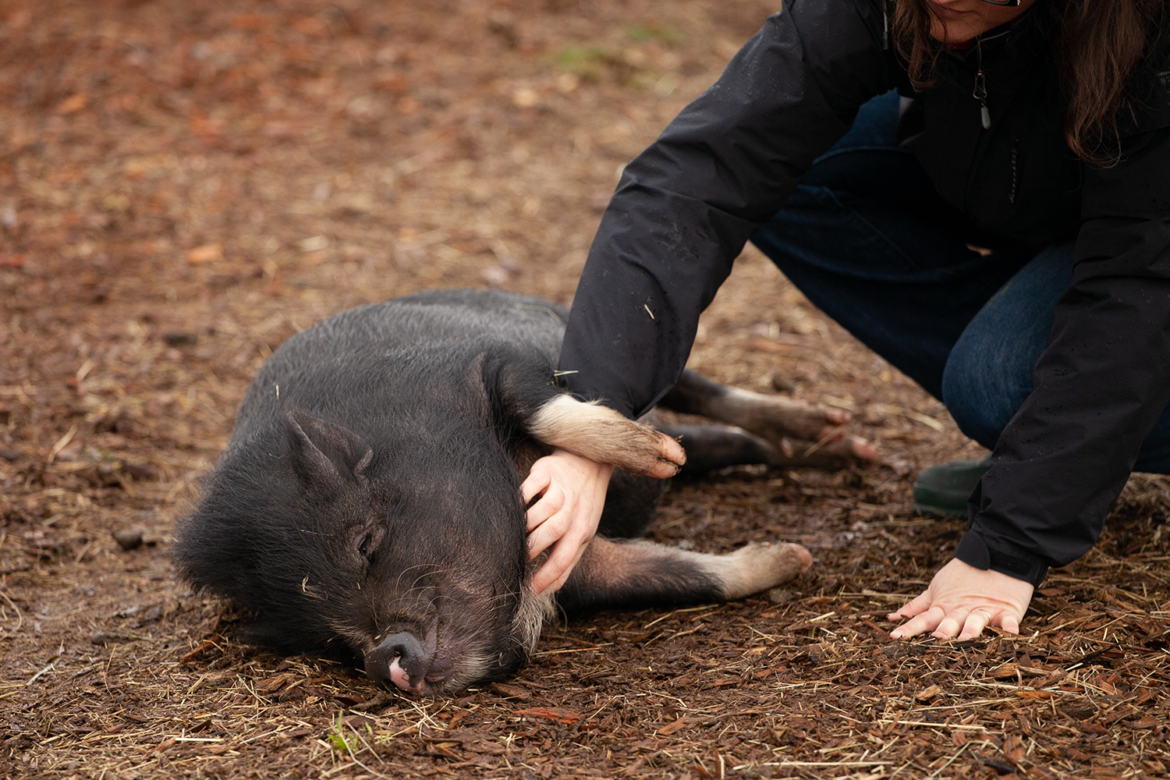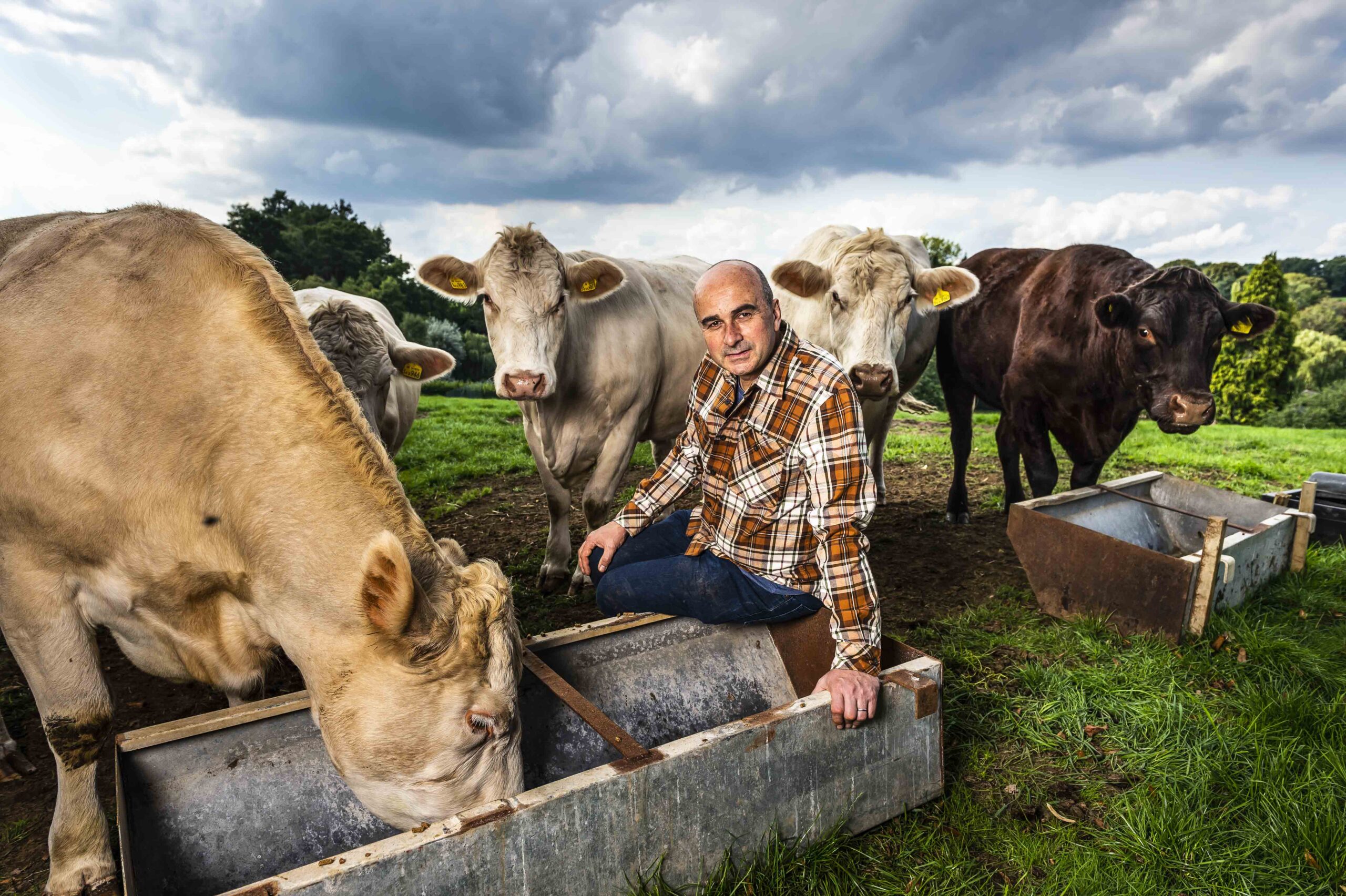The Revd Tom Harris reflects upon his childhood struggles of having to suppress his compassion towards animals, his eye-opening experience of watching Cowspiracy and how faith informed and supported his vegan journey.
It would be easy to say my Christian faith led me to veganism, but that’s not accurate. It would also be easy to say my faith calls me to be compassionate and compassion led me to veganism. That would be closer but fails to give credit to the true connection between my faith, compassion and the commitment to abstain from consuming any animal products. The most accurate way to describe that connection begins with compassion. My compassion for living things led me to the Christian faith and led me to veganism.
My compassion perhaps first emerged as an internal force when I was a young boy going fishing. I did not fish because I was hungry or to feed my family though I did sometimes eat the fish. Growing up on the East Coast of Florida, I fished because I was bored. Fishing was a way to have something to do outside; a reason to sit beside the water and watch the birds, the boats, and the people go by (I’ve since learned I can do those things without fishing). Though my motivation was not to harm, kill, or eat fish, the end result of fishing was always hooking a fish through the mouth and hauling it onto the ground where it flailed and fought to find the water as it suffocated. As a young boy who had watched his father and grandfather coldly and callously pull hooks from the mouths of fish and chop off their heads like they were chopping a carrot, I did not know what to do with my feelings of compassion for the fish except ignore them and stuff them down. So I just kept fishing and kept harming countless fish in the process. Many, many years later veganism would give me the concepts and language to act on those feelings by making different choices.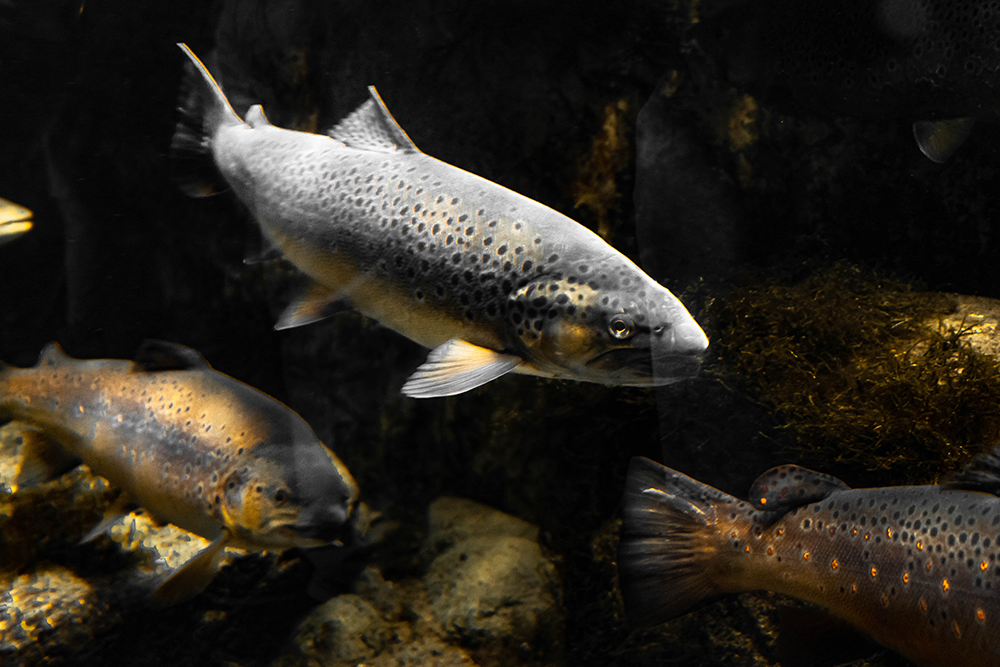
In the meantime, I kept stuffing down the feelings, not just when fishing but when eating any animal. I had a clear sense that any meat I ate was once a living, breathing, feeling creature, but still I ate. Sadness and grief swirled around the experience of eating meat, but those feelings were buried deep within and not allowed to surface. Without a doubt I enjoyed the taste of meat, but there was conflict brewing between my enjoyment and my sorrow.
In high school, I started attending church with a friend. Having not grown up in the church, I found it a refreshing experience. I enjoyed the music, the fellowship, the Bible study, the conversation, and the encouragement to go deeper. Most importantly, in going deeper, I unearthed the compassion, empathy, and love I had buried. Christianity gave me permission and a symbolic language for expressing more of who I was: a caring, kind, compassionate person. Yet, Christianity did not invite me to veganism. It did not invite me to make the connection between love for animals and the simple choices we can make to reduce our contribution to their suffering.
At one point I tried veganism without really knowing why. In college, I was doing a lot of what Gandhi called “experiments of truth” and veganism was an experiment. I did not stick because I didn’t really have a conceptual framework or ideology to sustain it. Finally, long beyond college, a single film gave me that framework. About six years ago I watched the documentary Cowspiracy. That film brought together the concepts of care for the earth, care for animals, and care for myself, in a way that clicked and stuck. I list them in that order because for whatever reason, it was the impact of animal agriculture on climate change that first motivated my commitment to veganism that is now going on six years. When it is so easy to feel helpless about climate change, simply changing what we eat by eliminating animal products from our diet is a practical step we can take every time we choose what we put in our mouths.
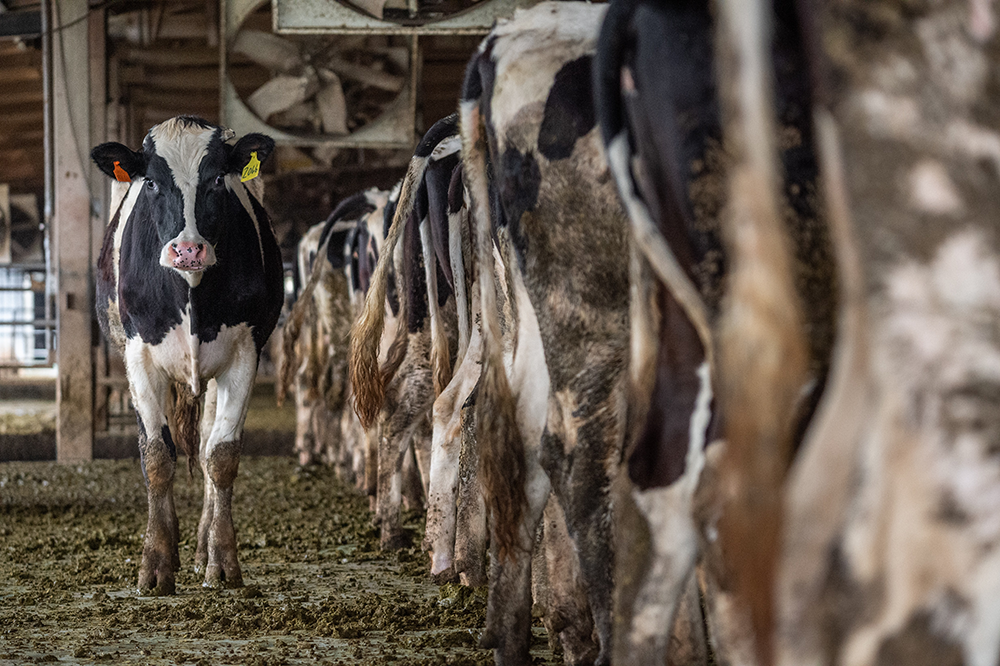
© Jo-Anne McArthur
However, over the years, I’ve learned that sadly, saving the planet is not a big enough motivation to stay vegan. Perhaps climate change is so hard to address because it is so hard to feel the connection between our individual actions and the collective impact they will create only after decades. Instead, what has kept me vegan for the long haul, what has made it easy to be vegan is remembering how much real suffering every animal product represents; every piece of chicken, every stick of butter, every egg. When I remember that, I have no desire to eat any animal product. I don’t want to contribute in any way toward that suffering. Does my mouth still water at the smell of bacon? It does. But, then I think about the cost in pain, fear, and death to so many animals, and I have no desire to eat it.
Even though, looking back, it’s clear my compassion led me to both Christianity and veganism, and not that I am vegan because I am Christian, I can say that today my Christianity very much informs my veganism. My Christianity gives me a symbolic, narrative language that aligns beautifully with this commitment. The narratives include much of Genesis 1 and 2 in which God creates all living things as good, God creates animals as companions to humans (not food), God calls on humans to be caretakers of all living things, and God gives humans plants (not animals) for food. I also find within the long tradition of carefully scripted animal sacrifice in the Jerusalem Temple, a picture of the elaborate ways people try to reconcile the killing of animals to feed a large population of humans, with the compassion we all have within us and the sorrow we all feel when animals suffer. I find in the crucifixion of Christ, and the early Christian concept of Christ as a final or ultimate sacrifice, a rejection of the idea that killing animals has any redeeming value. Ultimately, it is our willingness to sacrifice ourselves, and to put our selfishness to death so that something greater can rise, that brings us closer to our true selves, to one another, and to God. We cannot redeem ourselves by killing something else.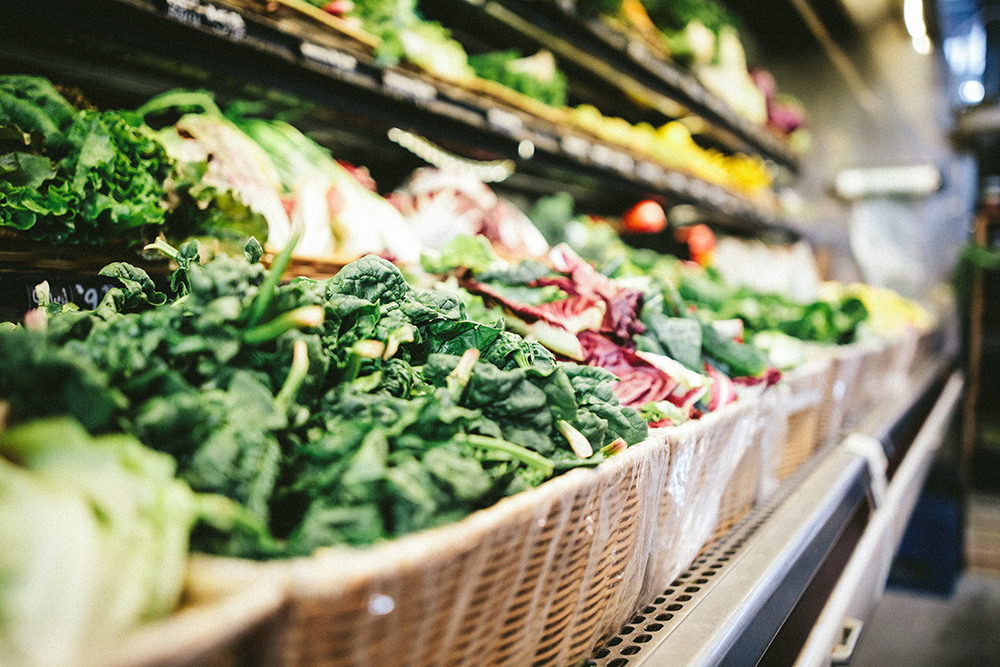
So in the end, I am not vegan because I’m a Christian. I’m vegan because I’m compassionate. I am Christian as a way to symbolically express, uncover, and engage that compassion. Unsurprisingly, that Christian conceptional, symbolic, and narrative system speaks beautifully to inform and support my veganism.
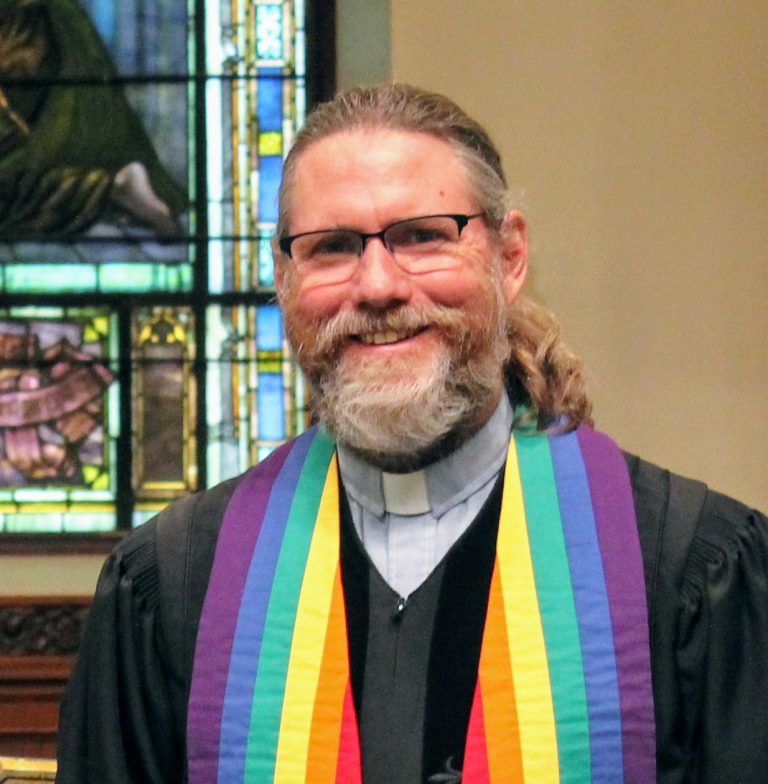 The Revd Tom Harris is Senior Pastor at Govans’ Presbyterian Church, Baltimore. He graduated from Clemson University and San Francisco Theological Seminary before serving churches in Michigan, South Carolina and Maryland.
The Revd Tom Harris is Senior Pastor at Govans’ Presbyterian Church, Baltimore. He graduated from Clemson University and San Francisco Theological Seminary before serving churches in Michigan, South Carolina and Maryland.
He has been vegan since 2016 and has become increasingly interested in the Christian calling to practice mercy and compassion for all living things. He enjoys gardening, hiking, walking his dogs, watching TV with his family, and reading science fiction/fantasy.


